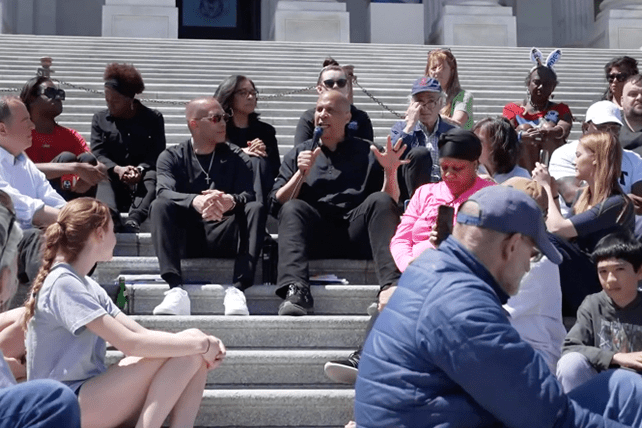Similarly, a spokesperson for Raskin said only that the office “helps thousands of people access the Capitol complex each year, including faith leaders like Reverend Barber.”
Jeffries was also reticent when asked at a press conference about Barber’s arrest. While he didn’t overtly endorse Barber’s actions, he also didn’t condemn them.
“We’re in a ‘more is more’ environment, and Rev. Barber spoke powerfully at the sit-in yesterday,” Jeffries said.
Other lawmakers have long-standing relationships with activists. Barber said that when Rep. Al Green of Texas — the lawmaker who stood up alone to protest Trump’s joint address to Congress in March, shouting “you don’t have a mandate to cut Medicaid” — learned about the pastor’s Moral Monday effort, the congressman called him and offered to help any way he could, floating the possibility of celebrating their efforts from the floor of the House. The two have known each other for years, Barber said, with Green attending Barber’s sermons and participating in past demonstrations.
In a statement to RNS, Green said he is “in support of Rev. Barber’s activism and driven by it,” and confirmed his Christian faith played a role in his own protest during Trump’s speech. He cited Matthew 25 as inspiration, referring to the passage as his “North Star” when it comes to issues involving food, clothing, shelter and health care.
But for Barber and his allies, whether Democrats endorse their activism is largely beside the point.
“I don’t know if it’s about who’s turning to who, but what we have to understand about MAGA — we cannot mobilize the American people just on a partisan basis,” he said. “We’re past that. This has to be an issue of morality versus immorality, right versus wrong.”
This article originally appeared here.

